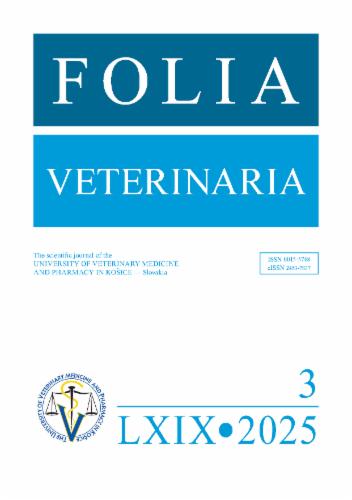Antiproliferative Effects of Crotalus cerastes Venom and Potential for Targeted Anticancer Therapy
Publicado en línea: 22 sept 2025
Páginas: 43 - 49
Recibido: 05 jun 2025
Aceptado: 20 ago 2025
DOI: https://doi.org/10.2478/fv-2025-0026
Palabras clave
© 2025 Dana Marcinčáková et al., published by Sciendo
This work is licensed under the Creative Commons Attribution-NonCommercial-NoDerivatives 4.0 International License.
Snake venom is known for its medicinal potential and antiproliferative and cytotoxic effects on cancer cells. This study investigated the effects of
